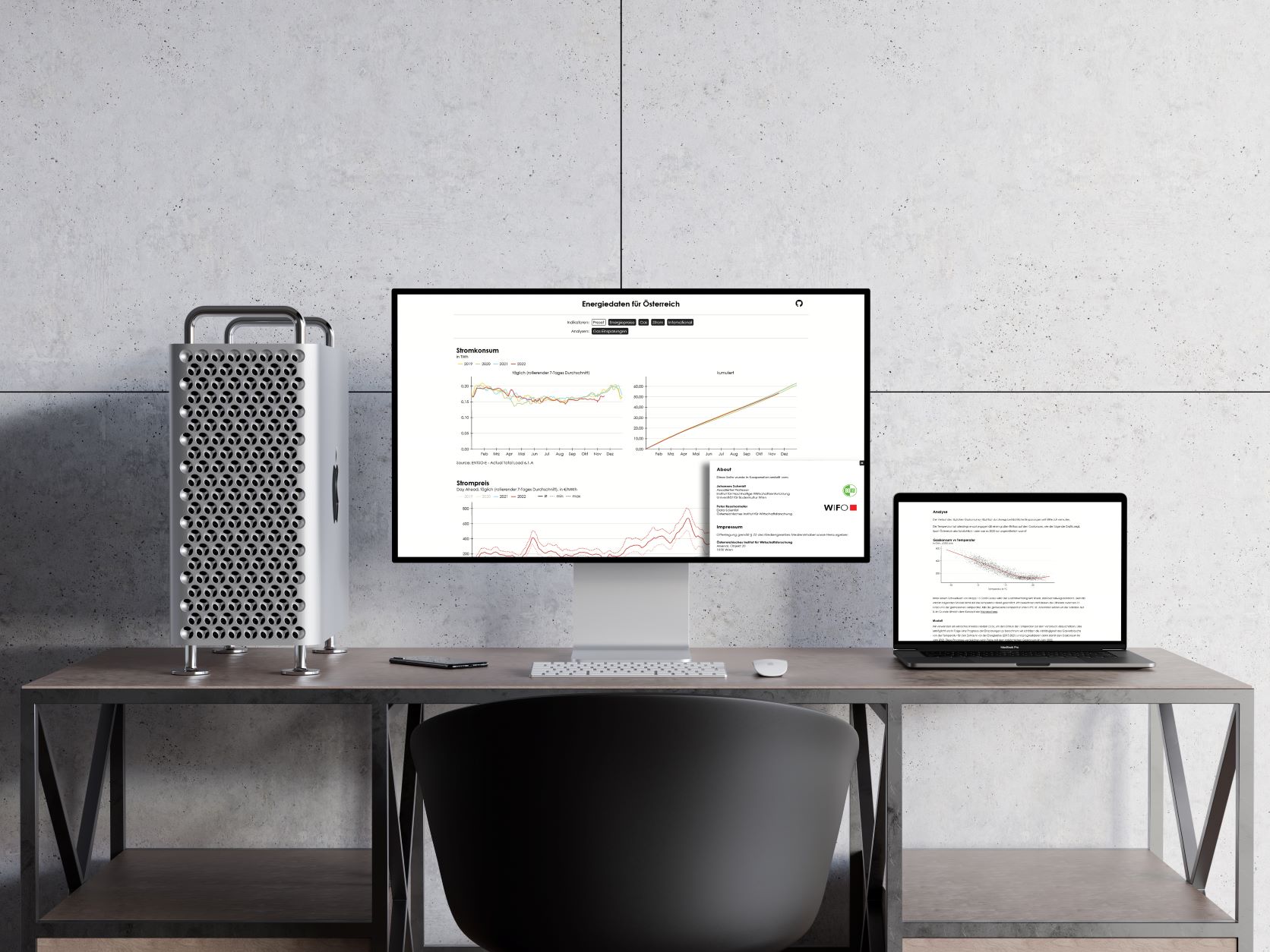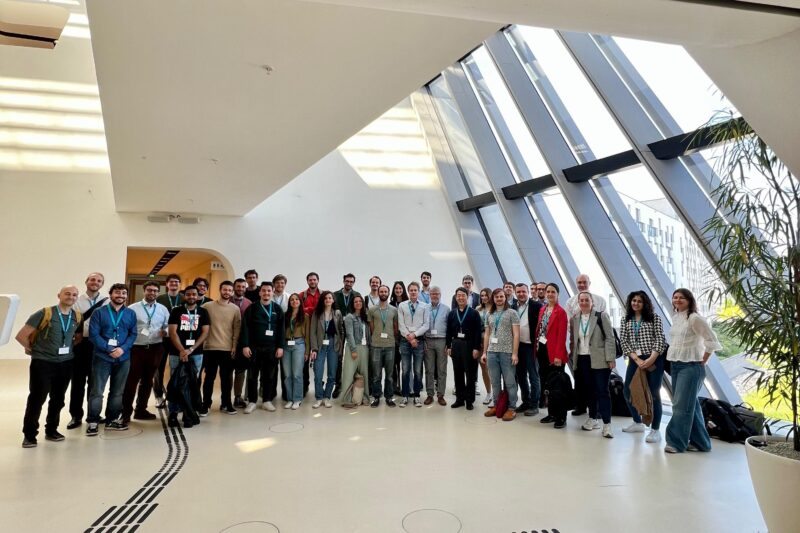
energie.wifo.ac.at Provides Daily Data for Austria
The current energy crisis poses a major challenge to the Austrian economy. At the centre of this is the question of how secure the energy supply is in Austria in winter.
At energie.wifo.ac.at, Data Scientist Peter Reschenhofer (WIFO) and Associate Professor Johannes Schmidt (University of Natural Resources and Life Sciences Vienna) compile daily updated energy data on energy supply. In addition to daily updated Austrian gas and electricity consumption compared to previous years, the data show the storage status of gas storage facilities and current wholesale prices for energy. Taken together, the wealth of data makes it possible to assess current energy saving efforts in Austria as well as the short-term security of supply in the gas sector and the price situation in the energy sector.
"We also publish temperature-adjusted estimates of gas savings. These show, for example, that the low gas consumption at the end of October was mainly due to warm outdoor temperatures, rather than savings", says Johannes Schmidt. They are also developing a graph to put current gas consumption in relation to official gas availability scenarios.
"The starting situation for the winter is relatively positive. The storage facilities are very well filled both in Europe as a whole and in Austria – and are still filling up, whereas in previous years storage withdrawals were already carried out from November onwards", explains Peter Reschenhofer. However, a very cold winter and the termination of all remaining gas supplies from Russia could dramatically worsen the situation. "Our online portal energie.wifo.ac.at is intended to make a small contribution to informing the population about the current situation – and possibly also to encourage changes in behaviour", say Schmidt and Reschenhofer.
























